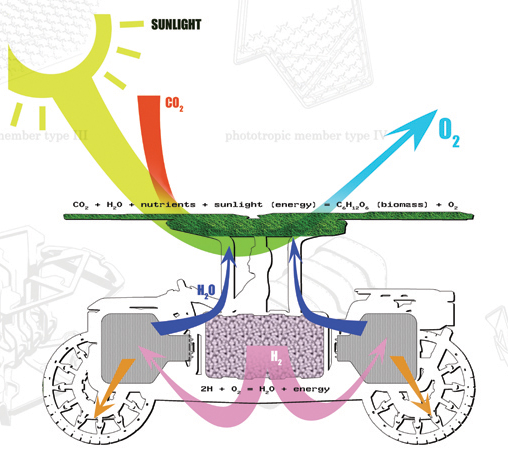You hear a lot about deregulation. Deregulation of electric utilities, deregulation of telecommunications, deregulation of the airline industry. Although the word may have lost it's luster for some, with all the companies, industries, and politicians constantly pining for deregulation, you might wonder – why should we have any regulations at all? After all, the United States is a capitalist, market-based society. Markets are very good at generating wealth. Why not let the market solve the problems?
If I were a libertarian, I would give a big 'hip-hip hooray' and finish the article right here. But I'm paid by the word, so I'll go on. Regulations are rules set up by the government that tell businesses what they can and cannot do. It sounds like an affront to freedom, democracy, and apple pie, so clearly we need a devils advocate.
We could look at examples of warm, fuzzy regulations like food safety inspections, environmental regulations, child labor laws and the like, or we look at cases where how deregulation has failed. Right now, though, I'd like to illustrate how a working, free market can lead to problems that only some kind of regulation can fix.
Let's say that scientists discover that the emission of particle X causes statistically significant increases in the cancer rate. Particle X spreads over a wide area so it's not a particularly local problem - the researchers say that decreasing emissions by 50% worldwide would reduce cancer in the U.S. by 20%.
For this illustration, particle X also happens to be a byproduct of many industrial processes. To make this an ideal example let's also say those same researchers have discovered that particle Y is a perfect substitute for X and causes no harm. particle X and Y are equal in price, abundance, availability, and all other attributes except X is harmful and Y is not.
How will the invisible hand guide firms toward replacing X with Y? By itself, Y does not present an immediate advantage to firms - there's no cost savings, so it does not provide a competitive advantage on that level. In fact, there will be some cost involved in switching machines and supply chains from X to Y.
This is a market, though, so there are both sellers and buyers. Rational customers will want to reduce their chance of getting cancer, so they might demand that firms start using Y.
Let's say there are three large firms in this case. A Ltd. decides the cost is too high, so it does not stop using X. B Co. decides to start using Y, and advertises this to consumers. At this point, the path seems clear - people will stop buying from A and switch to B, unless perhaps A lowers prices to cope with the lower demand. Unfortunately, there is a third firm, C Inc., which decides to forgo the cost of switching but advertise that they have switched.
What? That's not fair? Keep in mind this is a completely free market, so we won't have any laws to prevent this sort of thing. It's unethical? Keep in mind that the CEO of the C Inc. has signed a contract giving him a fiduciary duty to increase shareholder value - he could argue that passing this opportunity would be a violation of their trust.
In this situation it's clear C Inc. has the competitive advantage. Consumers will flock to B and C's products equally, until C lowers their price because of their lower cost structure.
The key here is that consumers have a lack of information. In any market, there's a good chance that the seller will have more information than the buyer - the seller already has the item and they know more abut how it's made. What's worse, many sellers are specialists with domain knowledge while many consumers will only have general ideas about any particular kind of product.
It gets worse if sellers are able to organize into large organizations. They gain additional economies of scale when it comes to information. Think of it this way - imagine it takes 8 hours of research to be knowledgeable enough about digital cameras to judge quality and price. If 100 people go to a store to buy a camera, they will each need to spend 8 hours. The store, however, can have 1 person ad headquarters with the knowledge and 12 sales people with 1 hour of training in cameras, enough to not sound stupid. The person at HQ sets prices and types up fact sheets, while the salespeople sell. In this scenario, each person will bear 8 hours of cost while the company only spends 12 minutes of study time per transaction.
So in this example, government regulation can help in two ways -
First, by laying ground rules for a marketplace. Laws that criminalize fraud or require truth in advertising will give C Inc. an incentive not to lie - avoiding fines and jail time. It is these ground rules which really make a market possible in the first place.
Second, by helping to bridge the information gap between buyers and sellers. Regulations like safety and quality inspections and reporting requirements give consumers the opportunity to have information in the first place. Once the information available to newspapers and consumer advocates the buyers can gain a bit of that economy of scale as well.
And by the way, deregulation makes Star Trek impossible.
 This is a car that is run by algae. And other stuff like hydrogen fuel cells. But look at the aglae. All that aglae is going to turn your louting and polluting CO2 into O2, perfectly breathable by animals and stuff. Probably people, too. The whole car is supposed to act as a leaf, with the algae consuming the byproducts of the motor (the carbon dioxide) and turning it into oxygen, just like a leaf would do in nature. This car would be doing it all the time, even when the car was not running. GM is incoperating a lot of different little car tricks into this vehicle as well showing that they have studied the industry: the hybrid breaking mehcanism for reclaiming energy in the tires, hydrogen fuel cell for the power source, the ugliness of a Hummer, ect.
So, it's ugly and probably not going to be voted 2008s cutest car. But, it's the idea that counts. I mean, it's smart to use a reuseable resourse for our fuel, right? Right. I know, I hear the outraged cries of all of the enslaved algae but I think there will be benefits for them as well. I just don't know what yet. I mean, they would be getting all of the sunlight any chlorophyll owning specimen could ever ask for. It's an all you can eat sunlight buffet. Of sun-shiny goodness. Unless you live in Ohio. Then it's a lot of cloudy days. So, live in Florida and this is the ugly little car for you. And I hope you like green because there aren't going to be a lot of customized colors on this one. Maybe blueish (blue green algae) or reddish brown (red tide or dinoflagellates) if they can figure it out.
On the website there is also a pretty colored schematic of how exactly they think this car will work. The man driving the car is sitting directly inside the hydrogen fuel cell as far as I can tell. And it looks like he has a tree growing out of his head, possibly a result from sitting inside the hydrogen fuel cell.
This is a car that is run by algae. And other stuff like hydrogen fuel cells. But look at the aglae. All that aglae is going to turn your louting and polluting CO2 into O2, perfectly breathable by animals and stuff. Probably people, too. The whole car is supposed to act as a leaf, with the algae consuming the byproducts of the motor (the carbon dioxide) and turning it into oxygen, just like a leaf would do in nature. This car would be doing it all the time, even when the car was not running. GM is incoperating a lot of different little car tricks into this vehicle as well showing that they have studied the industry: the hybrid breaking mehcanism for reclaiming energy in the tires, hydrogen fuel cell for the power source, the ugliness of a Hummer, ect.
So, it's ugly and probably not going to be voted 2008s cutest car. But, it's the idea that counts. I mean, it's smart to use a reuseable resourse for our fuel, right? Right. I know, I hear the outraged cries of all of the enslaved algae but I think there will be benefits for them as well. I just don't know what yet. I mean, they would be getting all of the sunlight any chlorophyll owning specimen could ever ask for. It's an all you can eat sunlight buffet. Of sun-shiny goodness. Unless you live in Ohio. Then it's a lot of cloudy days. So, live in Florida and this is the ugly little car for you. And I hope you like green because there aren't going to be a lot of customized colors on this one. Maybe blueish (blue green algae) or reddish brown (red tide or dinoflagellates) if they can figure it out.
On the website there is also a pretty colored schematic of how exactly they think this car will work. The man driving the car is sitting directly inside the hydrogen fuel cell as far as I can tell. And it looks like he has a tree growing out of his head, possibly a result from sitting inside the hydrogen fuel cell.
 But look at all the sunlight. I told you it would be a buffet.
But look at all the sunlight. I told you it would be a buffet.